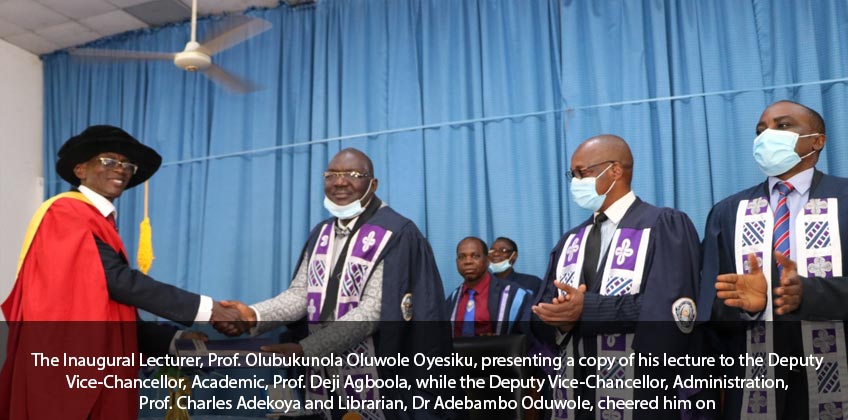A Professor of Bryology and former Dean, Faculty of Science, Olabisi Onabanjo University (OOU), Ago-Iwoye, Prof. Olubukunola Oluwole Oyesiku, has raised the alarm over the rapid devastation of Nigeria’s rainforests as a result of indiscriminate logging practices. He warned that indiscriminate logging in the country could lead to deforestation and expose the citizens to grave danger. He also argued that with the way rainforests are being destroyed by human activities, animals may be forced to leave their habitats some day and take over the cities from human beings.
The scholar, who noted that trees play a critical role in capturing and storing carbon dioxide to reduce global climate change, said everyone has a moral obligation to leave the world a better place for the coming generations. He urged individuals and communities to work together to develop national reforestation policies, positing that collaboration with botanists was crucial to achieving desirable ecosystem.
Prof. Oyesiku, of the Department of Plant Science, made the declaration while delivering the 100th Inaugural Lecture of OOU on Tuesday, 14th December, 2021 at the Otunba Gbenga Daniel Lecture Theatre, Main Campus, Ago-Iwoye. The Lecture entitled, “Romance with mosses” was presided over by the Vice-Chancellor of the University, Professor Ganiyu Olatunji Olatunde.
At the event, the don observed that human actions have seriously threatened the ecosystems and niche of animals. He, therefore, advocated conscious effort to save the nation’s rainforest biome from devastating activities.
“Astonishingly rapid destruction and logging of our priceless rainforests without collaboration with botanists are demoralizing. There will come a time when we all wake up to find animals have taken over the city. This will be as a result of our indiscriminate logging practices. Their ecosystems and methods of existence are under serious threat. Our actions have harmed them. Therefore, I chose to employ bryophytes as an indicator species for forest disturbance monitoring to detect even the slightest change long before it is visible to humans,” Prof. Oyesiku said.
The Inaugural Lecturer, who chronicled his Bryology voyage and what attracted his interest to the study, said his vision and mission as a field-oriented botanist are to ensure students’ attitudes towards learning change positively due to their participation in practical activities rather than theory only. According to him, Bryology, which is the branch of botany concerned with the scientific study of bryophytes (mosses, liverworts and hornworts), is a discipline that requires patience, dedication, thoroughness and is field-oriented.
Recounting the exploration of River Niger by Mungo Park, the distinguished expert said the positive influence of a single moss species on the renowned Scottish explorer (Park) when he was depressed and thought all was lost, had inspired his own commitment to bryological research. He further highlighted some of his modest contributions to the various fields of bryophytes as well as significant achievements, including management of the University’s botanical
reserve forest as well as Bup Touch and Go (BTG) herbal powder for toothache which was invented in year 2000, patented in March 2016 and approved by the National Agency for Food and Drug Administration and Control (NAFDAC) in November 2021.
The don, who pointed out that his encounter with mosses had taught him to be determined, unshakable and persistent in life despite all odds, enjoined people to learn more about bryophytes towards sustaining the systems of nature rather than destroying them.
“Unless we learn more about bryophytes,” he submitted, “they will vanish if we do not educate ourselves about these charming plants; we should encourage others to value and study bryophytes for themselves.”
“We all have a moral obligation to leave the world a better place for our children and grandchildren when we are gone.. Trees play a crucial role in capturing and storing carbon dioxide to reduce global climate change. The public needs education about the importance of this role. Individuals and the community should work together to develop national reforestation policies, and it is up to them to figure out what afforestation policies should look like,” Prof. Oyesiku reiterated.


